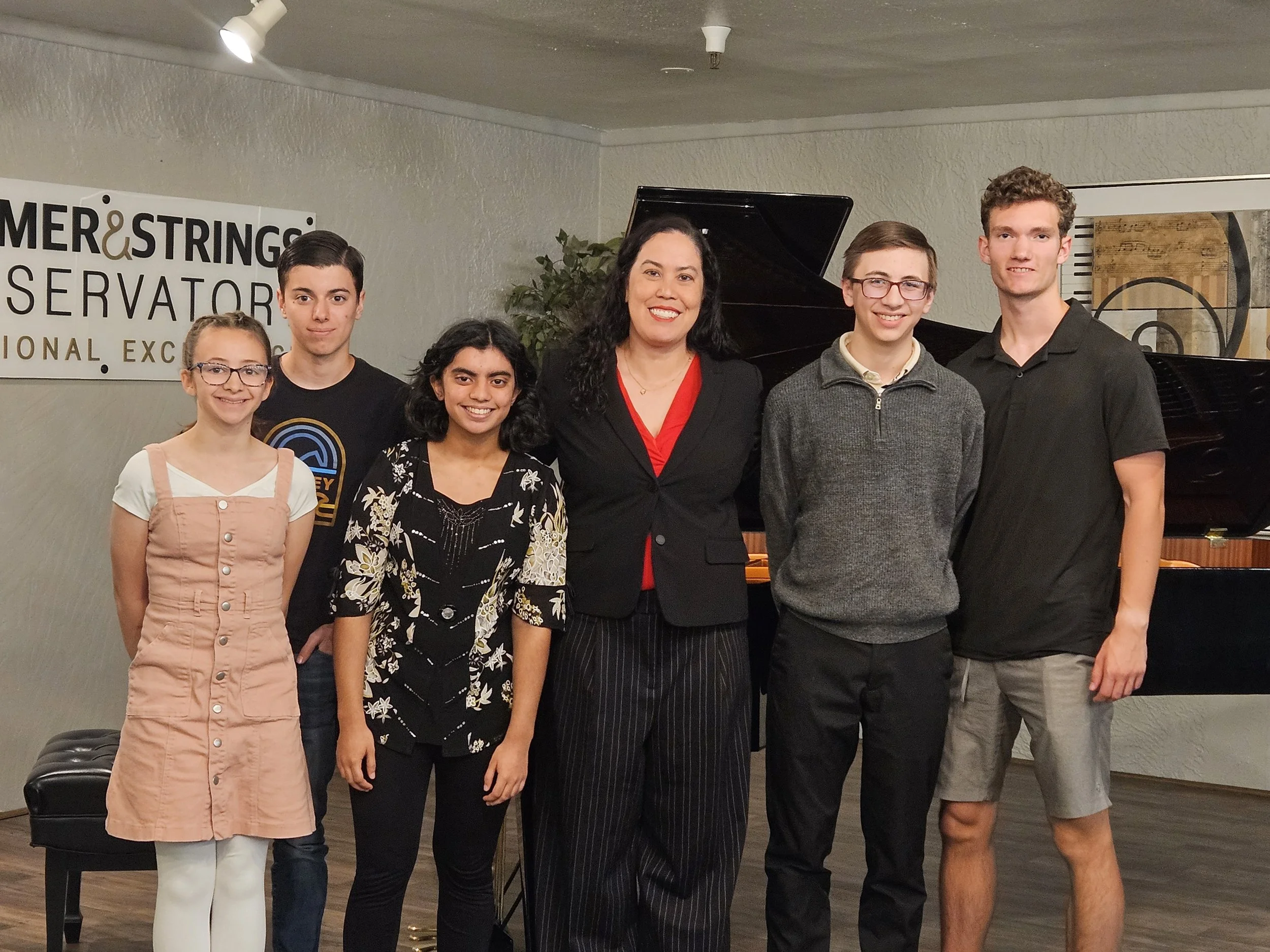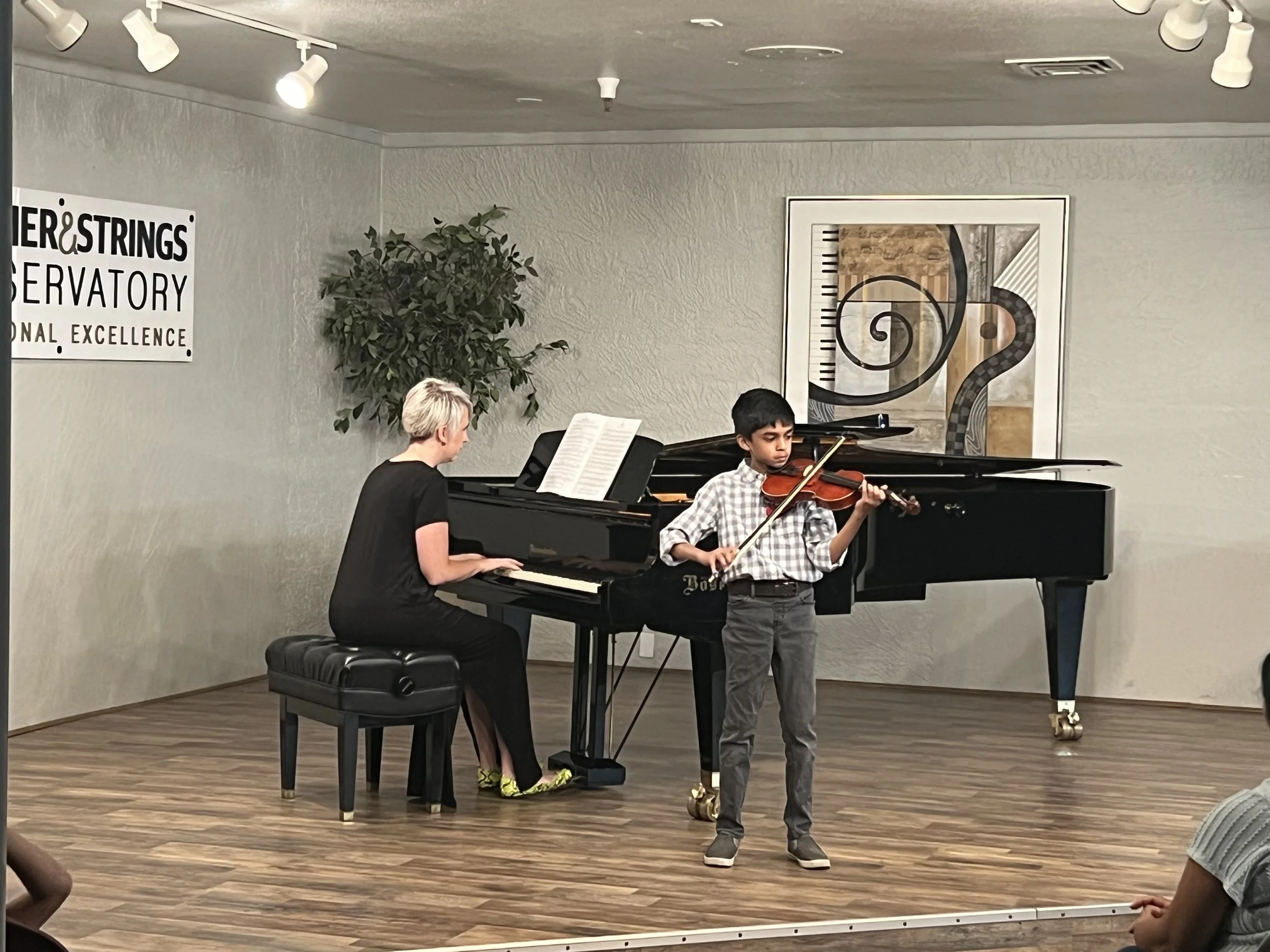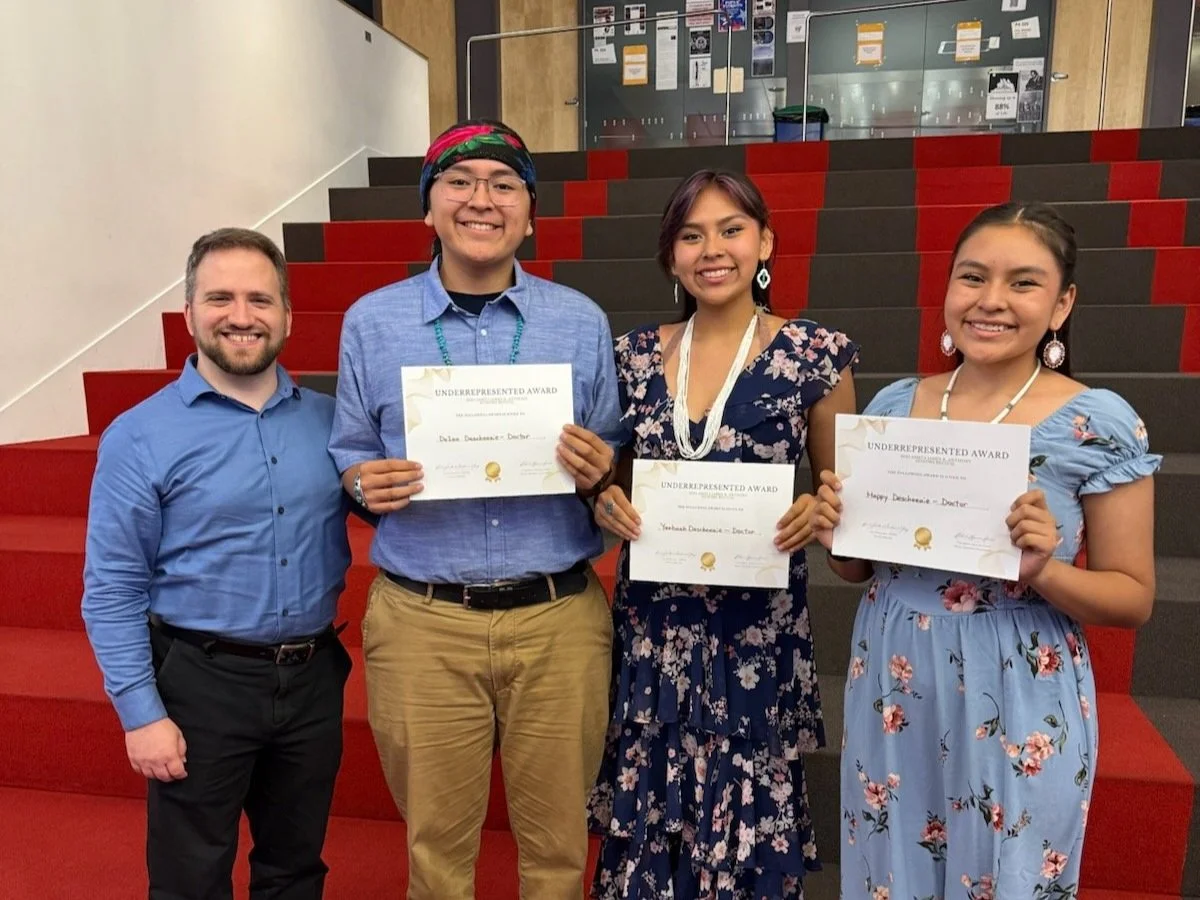FAQ
-
Great practice parents do some iteration of the following:
-Listening to their children play. create memories of listening to students play their instrument. Having people want to listen to you creates great motivation to want to keep playing!
-Help your child practice. Young students really benefit from a parent who will sit down with them every day and help with practice assignments. That helps to build great practice habits.
-Helping your child create a daily practice routine. Think about autonomy – practice is non-negotiable, but you could let the student choose what time they will practice. This helps give them ownership over their practicing.
-Make sure your child has a good instrument and a good environment to practice in.
Music lessons are a long-term commitment – parents need to understand this. There will be times of excitement and great progress, there will be times of complaining and of your student not feeling motivated. These peaks and valleys are completely normal!! Students will learn grit and perseverance through these challenges and achievements.
Remember - practice must be consistent, and most of the progress will be made at home. Parents need to help their child be consistent and to CREATE HABITS of practicing the piano each day.
-adapted from The Playful Piano
-
Most music schools are simply a collection of hired teachers who do and teach their own thing. Many times teachers even have their own separate rates, making it not a music school, but more of a space rental. H&S is a family of teachers with shared goals and ideals. All of our teachers are active performers, highly educated/trained, and are devoted teachers. We are ALL interested in Intentional Excellence, and how that can be achieved bey each student and by the teachers themselves. While each teacher is free to use methods and pedagogy that they are the most familiar and comfortable with, we do have some shared standards across the school. All students are taught music theory and technique as an integral part of a complete music education. They are not considered optional or secondary. Each department has a technique plan to follow, and students of H&S can expect to be well versed in scales, arpeggios, warmups, etc. for what is considered common for their instrument or voice.
H&S also pulls in WORLD-CLASS guest artists each semester for special masterclasses. These experiences are NOT common to other schools and teachers, and our students get this AND the use of our amazing concert hall for FREE. We are committed to providing the BEST musical education you can receive anywhere.
-
Great question. A studio class is a class that is led by the student’s teacher, and includes all of that teacher’s students. These are usually held twice a semester and they take the place of the private lesson for that week. Students perform for each other, and receive feedback on how to make their performances stronger. It is essentially a practice performance class.
A Masterclass is a class given by an outside Guest Artist whom H&S invites specifically to come give direction to our students. These classes are open to the entire school, and they are free of charge to H&S students and families. Most of the time, H&S teachers will select students who have a piece/song prepared at a high level to perform for these guest artists, who will then provide about 20 minutes of instruction to that student in front of those who attend. These are Amazing opportunities to learn from master teachers, and should not be missed. These special masterclasses are held IN ADDITION to normal weekly lessons and will likely be held on a weekend.
-
This is a great question, and one of our most common! There truly isn’t a magic age, but there are some clues that your little one might be ready! It also does vary from instrument to instrument.
Vocal students typically do not begin private voice lessons until they are at least 12-13, or after their voice has changed. Trying to formally train an immature voice can be very counterproductive, as many techniques change out of necessity once a voice has changed. We HIGHLY recommend singing as much as you can, however, and group classes are some of the best and most fun ways to get your young singer down the right path. Group classes for young singers teach correct principals that are universal before and after a voice change. That way, the young singer has good habits and is familiar with the vernacular before beginning a private study. H&S has Fantastic group voice programs. For the 8-12 year old, check out our Broadway Class. For the student who is 12-14, check out our Art Song Class, which is smaller and begins focusing on private lesson materials, including solos and singing harmonies.
For young Pianists and String players, the answer is quite different. The Suzuki violin program is truly geared towards the 4-6 year old beginning student. It has fabulous methodology, and both of our H&S violin teachers teach Suzuki method, as well as other methods.
Piano students can begin anywhere from 4-6. What you want to take stock of is a child’s readiness to listen to a non-parent adult, willingness to participate in copy-cat games and activities, and an interest in music and the piano specifically. If your child isn’t yet ready for this, don’t worry. It just means they are a child. Very few 4 yr olds are actually ready to begin formal lessons. If the timing isn’t right, then have fun with music for another year, and reevaluate then! With the right teacher, when they begin is less important than commitment and perseverance, on both the child and the parent’s part.
-
YES!!! We love beginners, and we work with several adults who are fulfilling their musical dreams! We have classes and teachers who are excited to work with YOU!!
-
The interview is NOT a thing to worry about. We want to get to know you and your personality a bit, while also learning about your musical past. This gives us a chance to form an idea of the path each individual student should take. We will ask you to play/sing for us (unless student is a true beginner, which is fine!) and then we will ask you questions about your music history to see where there are strengths and holes. We want to hear where you are in your musical journey, wherever that is. This allows us to form a plan to give you the best musical experience possible! We will be honest with you about expectations, the realities of practicing, and anything else you want to know. We NEVER turn down students based on current level of play or knowledge.
-
Much like missing swim practice, soccer practice, or dance classes, if a student does not show up to a lesson/master class for whatever reason, they forfeit that lesson/master class. You are paying not only for your teacher’s expertise, but for their time AND that specific time-slot. When students ask for a make-up lesson, that forces the teacher to forfeit an EXTRA time slot in their week, as they are often not able to teach in the abandoned time slot.
If you have to cancel for any reason, here are some ways to still make progress that week:
Meet your teacher for an online lesson at your normal time through programs like Skype or Zoom
Ask your teacher if you can swap your lesson time with another student in your studio
Send a video or audio recording to your teacher to receive written comments and feedback via email
-
It’s pretty easy. Simply send an email to admin@hammerandstrings.com with your intent to quit. H&S requires 14 days notice prior to your next billing cycle in order to protect the income reliability for our teachers.
-
Yes! Summer is designed with busy families and travel in mind. Between the months of June and July, simply plan 6 lessons with your teacher. You will only be charged for those 6 lessons.
Lessons can happen in several ways, including online, 2 lessons in a week, fewer longer lessons instead of 6 lessons (ie. Three 1-hour lessons instead of six 30-min lessons)
You will automatically be billed for. 1/2 tuition in the month of July.
-
-Students should dress up for the recital!
-Try to arrive for the recital about 15 minutes early. Nothing creates nerves more than showing up in a panic!
-Plan to stay for the entire recital program. People leaving in the middle is distracting, and disheartening for other performers.
-Students should bow BEFORE and AFTER they play/sing.
-Each student should feel free to make necessary adjustments to their stand/instrument before beginning their performance.
-EVERYONE GETS NERVOUS!!! Mistakes or lack of them are NOT an accurate measurement of success.Check out our Recital Prep and Etiquette sheet HERE for more details on how to be ready for a performance.
-
Yes, although one of the benefits of H&S is that we ALSO pay your accompanist, giving you an incredible rate.
Each semester, vocal students and intermediate-level instrumental students will be charged a 1-time $20 accompanist fee. This fee covers any performances in which you might need an accompanist. In addition, students/parents will be asked to compensate their accompanist at each lesson they attend. These are much reduced rates for the student, and H&S covers the remainder of costs so that our talented accompanists are paid fairly for their time and talents. We are often able to hire our own talented piano students to take these jobs. For some more advanced repertoire, a faculty pianist or other professional accompanist may be required.The fee for a student accompanist is $10.00 per 20 minutes of lesson time, and the fee for a faculty accompanist is $20.00 per 20 minutes of lesson time. This will be paid at the time of the rehearsal directly to the accompanist.
Teachers will ALWAYS let parents know when an accompanist is needed and when they will attend the lessons so that students can come prepared, not only with payment, but as prepared as they can be with their music to collaborate with another musician.




